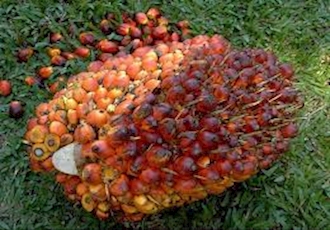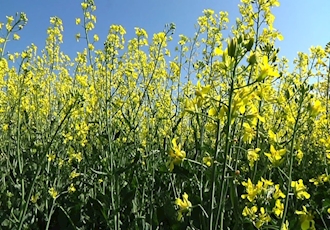Fighting for the Future of Canola With Genetic Engineering
Fifteen years since the emergence of clubroot disease in Canada, seed producers and farmers are still struggling to combat the disease in canola.
Clubroot is a soil-borne pathogen that forms in the roots of canola. The oil (which is known both as canola and rapeseed oil) quality of infected plants is not affected by the presence of clubroot, but the yield is up to 50 percent lower and the disease does eventually kill the plant.
“It almost becomes like a cancer inside of the plant,” Stephen Streklov, a professor of agriculture at the University of Alberta, said at a recent lecture on the topic. “It’s really, really difficult to ever get rid of it completely.”
Not only is the disease hard to destroy, but it also lingers in the field for at least 15 years, according to Streklov. Other scientists have said this figure may be closer to 20 years.
As a result of this, Monsanto, DowDuPont and Bayer AG are all engaging in a high-stakes effort to develop new clubroot-resistant seeds in order to protect Canada’s $21 billion canola oil industry. According to the United States Department of Agriculture, canola oil is the third most produced vegetable oil.
“I think that genetic resistance, whether engineered or done by traditional means, is, in general, the best strategy for sustainable disease resistance,” said Lynn Epstein, a professor of plant pathology at the University of California at Davis. “Whether it will work or not depends, most importantly, on exactly what gene is used.”
DowDuPont, which has one of the largest market shares in clubroot resistant canola seeds in Canada, has released a new seed this year. These new clubroot-resistant seeds will be used in the most heavily affected areas in order to prevent long-term damage to traditionally productive fields.
“If you don’t have resistance, you can’t grow canola at all in some areas,” Igor Falak, a senior researcher at a regional unit of DowDuPont said in a recent interview. Companies, such as DuPont, realize how important it is to get ahead of the clubroot problem before it becomes even worse.
“Companies are very mindful of it because the consequences are huge,” David Dzisiak, the North America commercial leader in grains and oils, told Reuters. “If farmers can’t grow their most profitable crop, we can’t sell it.”
Meanwhile, at Monsanto scientists are working on crossbreeding canola plants with close relatives, including rutabaga, cabbage and turnips. All of these plants have a natural resistance to the disease.
In Manitoba, one of the three Canadian provinces that have been hit the hardest by clubroot, Monsanto scientists have successfully bred a hybrid canola-rutabaga plant. These scientists hope that this new hybrid could be a solution.
Sources:







